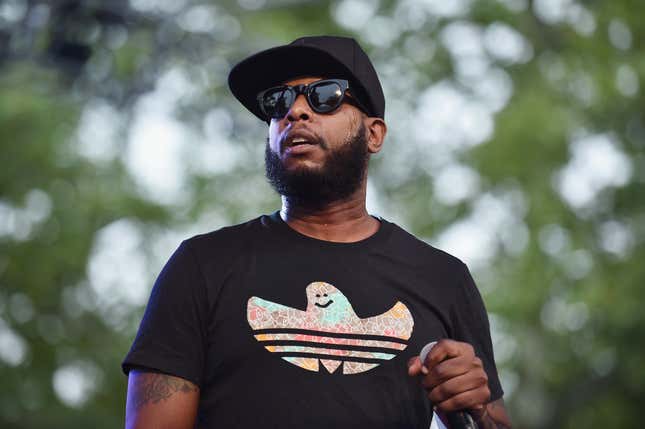
There’s been a bit of a debate within The Root on how to cover Talib Kweli’s inexhaustible obsession with Maya Moody.
For context, the 44-year-old rapper, who has over one million Twitter followers, grew upset when Moody tweeted the mildest of observations about the sort of women rappers tend to marry, and has tweeted at or about her hundreds of times (yes, hundreds) in the two weeks since.
The screenshots below were taken when I began writing this at 11:50 am EST.
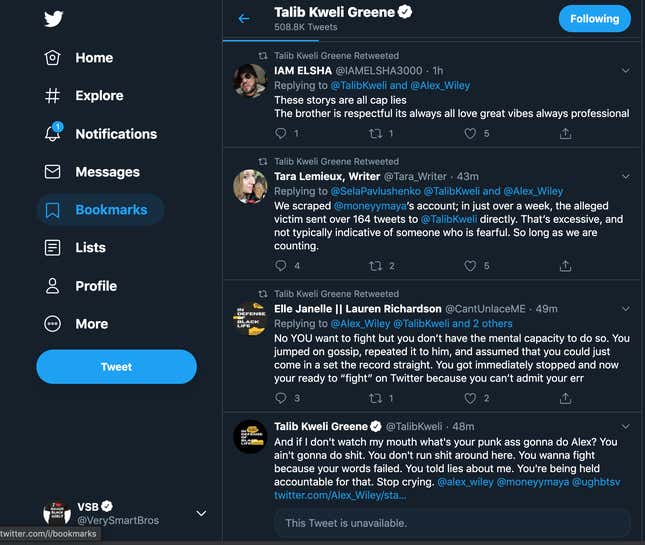
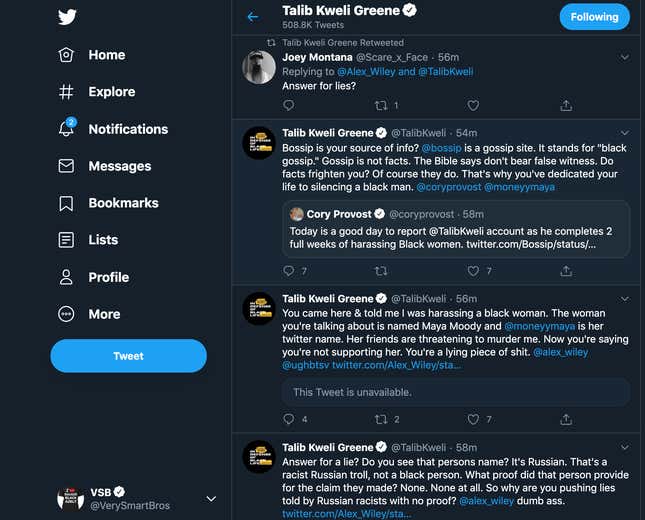
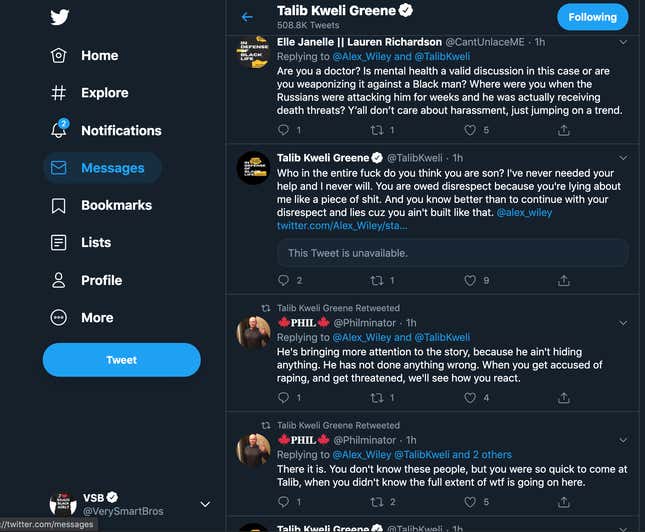
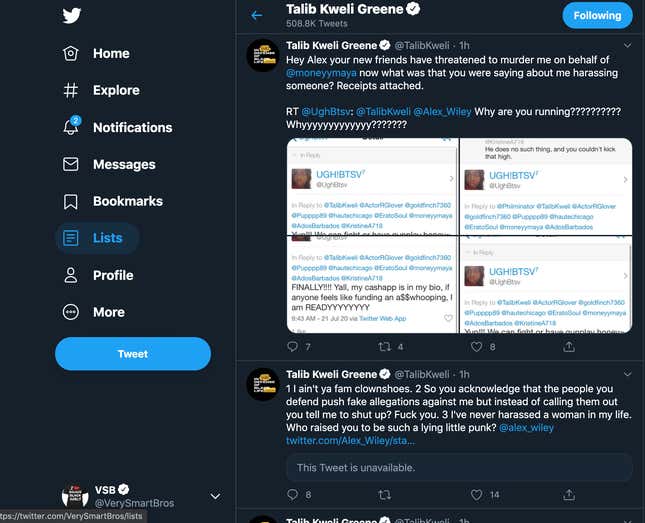
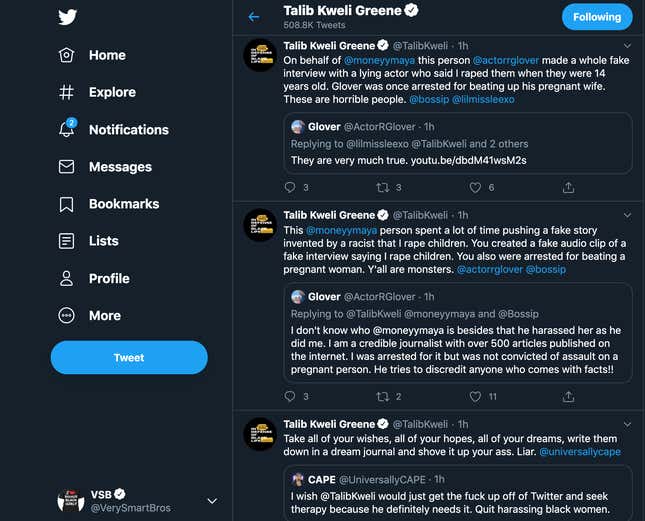
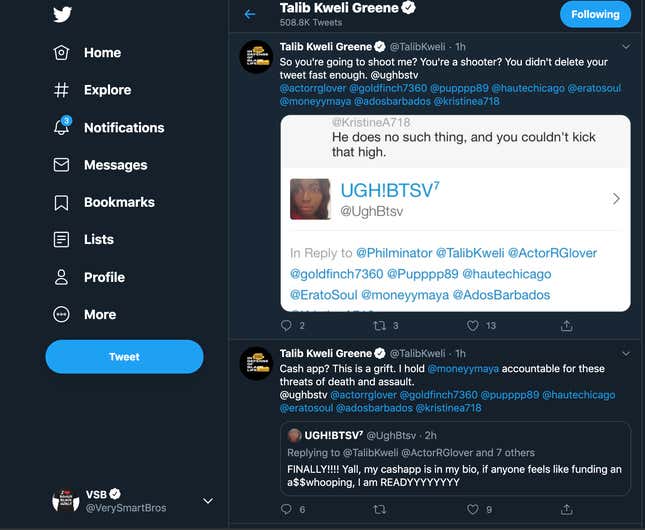
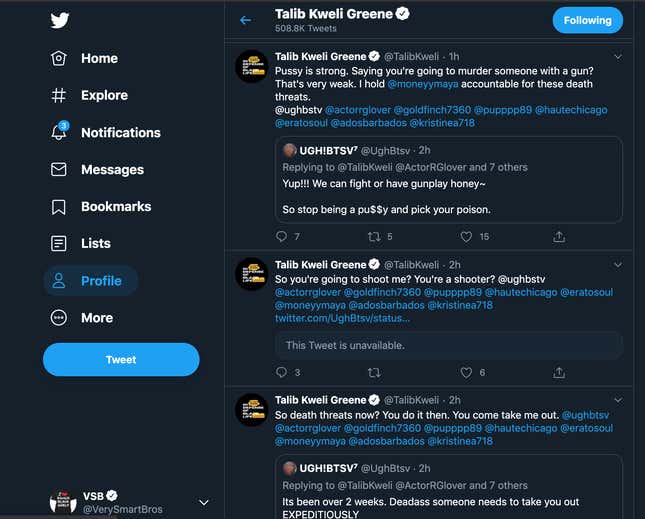
Again, this is just from this morning.
Anyway, the internal debate—and “debate” is probably too energetic of a word; it was more of a conversation—had two parts: First is whether Talib Kweli matters enough, in 2020, to expend energy writing about his behavior. Ultimately, that’s inconsequential, because the story is not about “Talib Kweli, rapper” as much as it’s about a middle-aged man with a tremendous platform devoting this much energy to harassing a 24-year-old Black woman.
But then, once that’s settled, what’s the angle? A straight news piece, like what Bossip and other Black news sites have already done? Or is there a larger theme here?
I’ll admit that before reading up on this yesterday, I didn’t know much about this. I’m on Twitter, but I’m not very active there. I just don’t have the bandwidth—or interest—to write as much as I do and also tweet frequently. Talib Kweli is at the far end of this spectrum, and I suspect that his activity there is at least partially due to the fact that while many of his contemporaries have pivoted and found lucrative ways to extend their artistic careers—The Roots are on Jimmy Fallon, Common is in John Wick, etc—he is on Twitter and has a podcast. This is his brand now.
Of course, there’s nothing wrong with that. All artistic careers eventually slope downward, and his platform, voice, perspective, and energy still have value. Especially now, in 2020 America, with so much to amplify, to fight against, to mobilize for, to shout at. So why, with so many worthy targets—so much oppression and inequality and hate thriving today—is he giving this woman so much attention?
The most charitable answer here is that he’s just trying to clear his name, and he’s as passionate with that as he is with everything else. The least charitable—and, considering his Twitter history, most likely—is that he believed this Black woman, who’s half his age (and has 50 times less followers), to be an easy target, and he’s embarrassed that she had the audacity to challenge him. What’s happening now is the extended pout of a bully who got punched back.
This is the behavior of an incel—the sort of thing that only exists in public when there’s validation for it—and now I’m less curious about why he’s doing this and more about why none of his aforementioned peers have pulled his coat. This is, I think, the angle here. Talib Kweli is six years from AARP. He’s colored bubbles. But why does he feel empowered to act this way? Where are the men in his life, who have his phone number and email address and could just hit him up like “Bro, what the fuck are you doing?” This doesn’t even have to be a public rebuke—although those work, too. Just a group text. We ask white people to regulate the racists among them, and cops to actually hold the “bad apples” accountable. So where are they?



